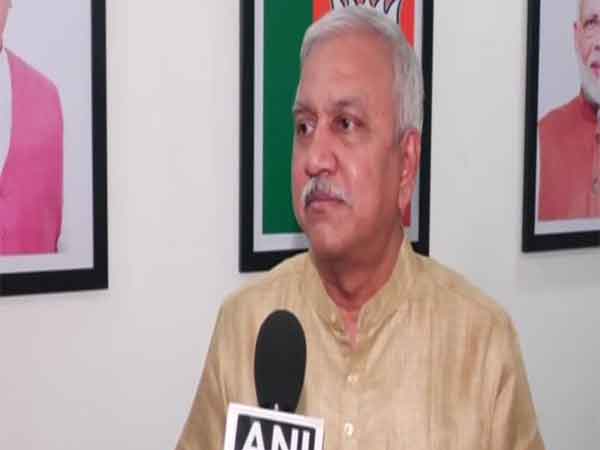Pakistan's bleak picture on counter-terrorism continues ahead of FATF session
Feb 03, 2022

Islamabad [Pakistan], February 3 : Pakistan's grey episode on promoting terrorism and its continuing bleak picture on counter-terrorism continues ahead of the Financial Action Task Force (FATF)'s plenary session this month, as noted by Times of Israel.
The FATF, the global anti-terrorist financing and anti-money laundering watchdog, during its plenary session in October 2021, reviewed the progress Pakistan had made in compliance with its standards and decided to retain it on the Grey List. Pakistan had then claimed that Jaish-e-Muhammad Chief Maulana Masood Azhar (MMA) was untraceable and a proclaimed offender.
Besides, it took the cosmetic measure of putting Jamaat-ud-Dawah Chief Hafiz Saeed under house arrest. Nevertheless, it could not avoid being placed in the Grey List, according to the Times of Israel.
Though the FATF has time and again urged Pakistan to address the issue of terrorist financing as soon as possible by demonstrating that the investigations and prosecutions it is undertaking, target senior leaders and commanders of the UN-designated terrorist groups.
Pakistan is far from following the FATF's instructions in this regard. The UN-designated groups Jaish-e-Muhammad (JeM) and Jamaat- ud-Dawah (JuD) involved in radicalisation and terrorism are roaming around freely in the country. These groups remain undeterred in their pursuit of spreading hatred in the name of religion and using terrorism as a tool to achieve their nefarious designs.
The unhindered meetings, conferences and social media campaigns conducted by the leaders of these groups clearly indicate the tacit support they enjoy from Pakistan authorities.
The FATF the global anti-terrorist financing and anti-money laundering watchdog, during its plenary session in October 2021, reviewed the progress Pakistan had made in compliance with its standards and decided to retain it on the Grey List.
Pakistan had then claimed that Jaish-e-Muhammad Chief Maulana Masood Azhar (MMA) was untraceable and a proclaimed offender. Besides, it took the cosmetic measure of putting Jamaat-ud-Dawah Chief Hafiz Saeed under house arrest. Nevertheless, it could not avoid being placed in the Grey List.
Though the FATF has time and again urged Pakistan to address the issue of terrorist financing as soon as possible by demonstrating that the investigations and prosecutions it is undertaking, target senior leaders and commanders of the UN-designated terrorist groups, Pakistan is far from following the FATF's instructions in this regard.
The UN-designated groups such as Jaish-e-Muhammad (JeM) and Jamaat- ud-Dawah (JuD) involved in radicalisation and terrorism are roaming around freely in the country. These groups remain undeterred in their pursuit of spreading hatred in the name of religion and using terrorism as a tool to achieve their nefarious designs. The unhindered meetings, conferences and social media campaigns conducted by the leaders of these groups clearly indicate the tacit support they enjoy from Pakistan authorities.
Pakistan has been facing the FATF's scrutiny since 2018 for its inability to curb the terrorist financing and money laundering activities being undertaken on its soil. It has had several reviews since 2018, conducted every four months, to assess its progress along the action plan created by the FATF for the country to implement corrective measures. But Islamabad does not seem to learn a lesson that its support to these terrorist organizations has come at a huge cost for the country's economy, according to the Times of Israel.
A paper, 'Bearing the cost of global politics - the impact of FATF grey-listing on Pakistan's economy, published by an Islamabad-based think-tank, Tabadlab, shows that Pakistan's grey-listing by the FATF from 2008 to 2019 may have resulted in a cumulative GDP loss of USD 38 billion.



















